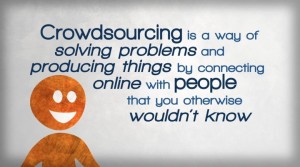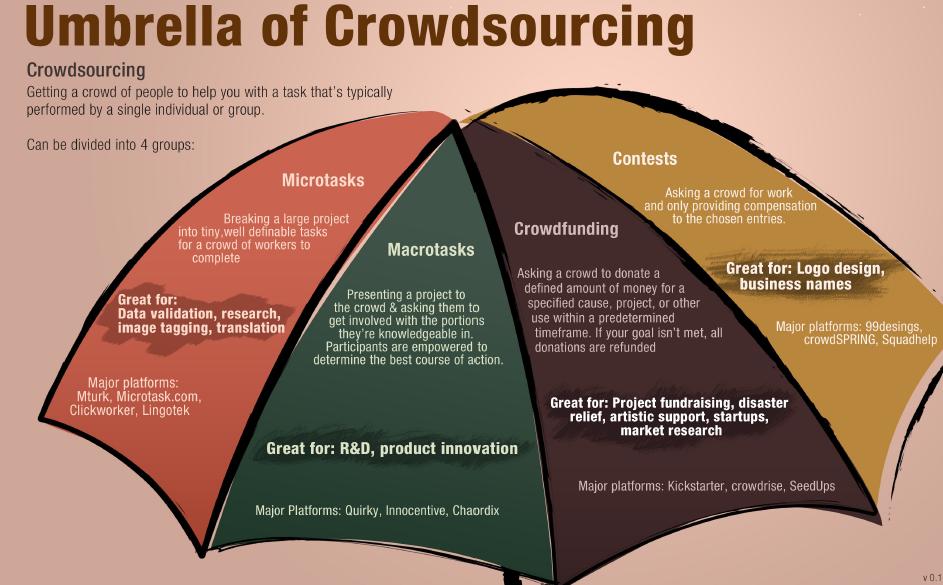Make a difference – Sourcing the crowd
Welcome to Communications/Writing Wednesdays. Crowd sourcing is one form of civic engagement and is an aspect of digital literacy people can gain by participating in online social organizations.

One of the great benefits of the Internet is being able to form large social groups with a common purpose. Most Internet users use email and participate in social media, but there so many initiatives and opportunities literally at your fingertips to participate in. You can make a difference.
Wiki Wiki – Share information
Wikipedia is one of the most well-known ways Internet users can participate in something bigger online. Wikipedia allows anyone to add, modify, or delete content in collaboration with others online. This group collaboration not driven by monetary return, but instead by knowledge sharing, and the strength of the network of contributors and collaborators has made it the sixth highest ranking website globally.
Wikipedia isn’t the only wiki online that people can contribute to. Some popular topical wikis you might like to contribute to are: Wikitravel, RecipesWikia, WikiBooks, or WikiHow. Or start your own wiki!
Kickstarter – Fund Entrepreneurship
Kickstarter is the largest crowd funding program to help creative ideas become a reality. Everything from music, comics, video games, to technology projects. You can fund projects to build products, books or albums you’d like to buy or even search local and support an entrepreneur in your city!
Kickstarter isn’t the only crowd funding website out there. Some popular websites are: Razoo, Crowdrise, PledgeMusic and AppBackr.
reCAPTCHA – Digitize Literature
reCAPTCHA is a human-based character recognition web security measure (colourful images with two distorted words at the bottom of web registration forms). reCAPTCHA helps digitize books, newspapers and old radio shows. It improves the process of digitizing books by getting humans to read words that computers cannot. You can get involved by putting a reCAPTCHA on your website if you have issues with spam for example.
Many universities are taking part in their own digitization projects as are non-profit or local organizations. For example, the University of Michigan, University of California, and University of Alberta. Digitization projects might be harder to find, but making connections in your city could help you discover local initiatives.
The above three examples are not representative of all forms of crowd sourcing, but are merely stated to demonstrate how you can get involved and make a difference by joining a crowd.
Types of crowd sourcing

Have you participated in a civic project or political movement? What do you think of crowd sourcing opportunities?


Great post! Not sure if it belongs to your list, but one of the earliest applications of crowdsourcing is that of software development. Linux is one of the most prominent examples of free and open source software collaboration. It might not actually consist of the average ‘lay-crowd’ we know today. However, the Internet crowd in its earlier days probably consisted of a significant number of developer-types.
Yep Linux is definitely crowd sourced. I commented on it in this week’s class discussion board. This blog post aims to highlight ways people could get involved online.